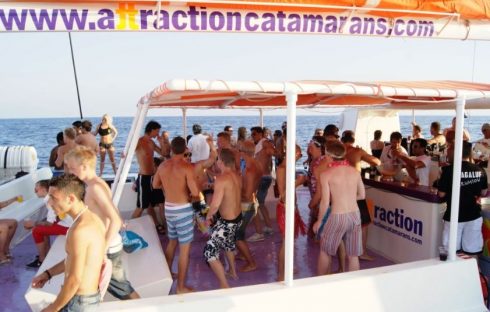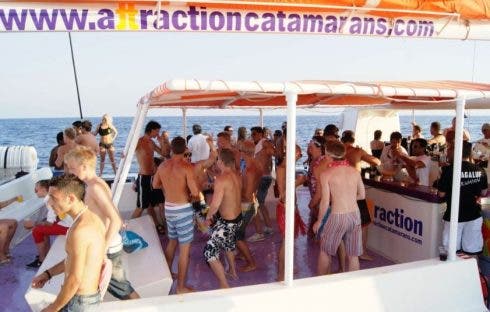HOTELIERS in Mallorca have decided to take the law into their own hands as they struggle to deal with unruly alcohol-fuelled holidaymakers.
They are pleading for action against drunkenness, saying recent measures designed to tackle the issue have failed.
They claim that chronic underfunding of police services has led to the bizarre situation of hoteliers receiving police training to deal with lawbreaking tourists while the National Police station continues to close at night.
Now, hotels have had enough.

Photo: Flickr
The association’s lawyer, Patricia Campomar, said the situation is worse than it was before the pandemic.
Illegal street selling, large ‘botellon’ drinking parties, and the sale of alcohol in unlicenced areas were all listed as some reasons why some parts of Mallorca have descended into chaos.
Meanwhile, under a new security plan launched to plug the gap left by the lack of police, hotel owners are also hiring more security guards to protect staff, and are forcing guests to sign a code of conduct before checking in to hotels.
“We are having similar levels of occupancy than in 2019, but every year we have the same problem and the local authorities are not doing anything to deal with this problem. For that reason we have decided to launch our security plan,” said the Palma de Mallorca hoteliers in a statement.
Playa de Palma is hugely popular among British and German tourists in summer, and bookings recently surpassed pre-pandemic levels.
Last year Balearic Tourism Minister Iago Negueruela pledged to eradicate ‘drunken’ tourism from the islands.
He said that although it has so far proved difficult to tackle so-called ‘tourism of excesses’, a more concerted effort would be made to ‘improve the quality of certain hotspots in the Balearic Islands’, particularly in areas populated by Brits.
Excessive drinking by holidaymakers has long been a problem in the Balearic Islands, so much so that in January 2020, a new law was introduced to stamp out anti-social behaviour in Playa de Palma, s’Arenal and Magaluf, as well as Sant Antonio in Ibiza.
In this zero tolerance approach, the decree strictly prohibited any promotions of booze, the sale of alcohol in commercial stores after 9.30pm and the act of ‘balconing’.
Guests on ‘all inclusive’ holidays were also stung by the law, now only being allowed three free alcoholic beverages at lunch, another three at dinner, with all ‘happy hour’ offers being banned.
Police were also given increased powers to act against loud music made by nightlife venues with serious violations resulting in an establishment being shut down for a period of time.
Bars selling booze after hours can be slapped with crushing fines of up to tens of thousands of euros.
Ironically, given the hoteliers complaints, they too can be fined for failing to swiftly kick out disruptive guests.
The sanctions drive marked a departure from the harm prevention measures that had previously been favoured by the Mallorcan government, such as makeshift first aid units on popular bar strips.
Residents of tourist hotspots like Magaluf, Playa de Palma and Sant Antoni have previously criticised politicians for gimmick responses to problem holidaymakers, such as getting British bobbies on the beat to patrol pedestrian areas during the summer season.
After a number of embarrassing videos being leaked of drunken tourists, Negueruela issued a stark message to tourists intending to consume excess alcohol on holiday, warning that they were not welcome in the Balearic Islands.
He added that although these changes may have put off many from coming to the Baleares, that it was more important to focus on the quality of the tourist rather than the number.
But Campomar says such measures have not improved the situation.
Illustrating how bad things have become, she gave an example of a Mallorcan business which operates specifically to deliver alcohol to holiday makers as they arrive at the airport.
“When they arrive at a hotel reception, they already have cans of beer with them,” she said.
READ MORE:

